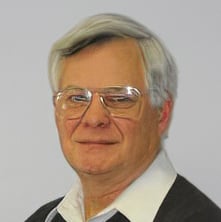This article was written by Bill Lydon, automation industry authority, journalist and former chief editor at InTech magazine.
To create the greatest value for their employers, automation professionals need to be change agents. In my experience a change agent is a person with specialized knowledge and know-how who facilitates positive change to improve operations efficiency.
Industry today is in great need of automation change agents skilled and knowledgeable in a wide range of technologies. Today there are many new technologies that can be applied to improving production. These choices can easily overwhelm nontechnical management in a company to a point where they simply shut off new ideas and maintain the status quo.
One of the obstacles to change is the idea that, “we are using only a fraction of what we have today, so let’s not invest in new technology.” This ignores the fact that hardware and software built with newer technology have inherently greater performance, integrate more easily, and are simpler to use. For example, I doubt that I fully exploited all the features of my Blackberry, but when I moved to a new smartphone I became more productive with easier-to-use features and functions. I would not be as productive today if I stayed with the old technology.
In many companies, other areas such as sales, marketing, accounting, and information systems groups have been better at selling new technology investment ideas to management than industrial automation groups. There is a real need for automation professionals to be change agents to have a positive impact helping an organization understand the possibilities, show how to make them a reality, gain organizational support, and convince management to invest in new technology.
Automation professionals are in a unique position due to their interaction with a wide range of groups in a company. This gives automation professionals a broader perspective to understand more technical possibilities and how they can be integrated into production.
Automation professionals can learn and refine a number of skills to be effective change agents. Change agents have a high tolerance for ambiguity, functioning comfortably and effectively in an uncertain environment. This is familiar territory for automation professionals who face ambiguity routinely when implementing new applications and solving system problems.
Change agents need organizational networking skills in establishing and maintaining appropriate contacts within and outside the organization to understand possibilities. In many cases gaining help from others to implement a new change requires negotiation and positive interpersonal skills such as listening, collecting appropriate information, identifying the concerns of others, managing meetings, balancing conflicting goals, and resolving conflicts.
Being able to communicate clearly and effectively to management the need and value of implementing changes is a critical skill automation professionals need to develop to be effective change agents. Communication needs to convey factual, financial, life-cycle return on investment, and emotions including enthusiasm to stimulate others to get involved. Pulling all this together creates a desirable and challenging vision of the future.
Consider developing the skills to be an effective change agent to deliver more value to your employer, and in the process you will become a more valuable employee.
About the Author
Bill Lydon is an automation industry expert, author, journalist and formerly served as chief editor of InTech magazine. Lydon has been active in manufacturing automation for more than 25 years. He started his career as a designer of computer-based machine tool controls; in other positions, he applied programmable logic controllers and process control technology. In addition to experience at various large companies, he co-founded and was president of a venture-capital-funded industrial automation software company. Lydon believes the success factors in manufacturing are changing, making it imperative to apply automation as a strategic tool to compete.
A version of this article also was published at InTech magazine.




